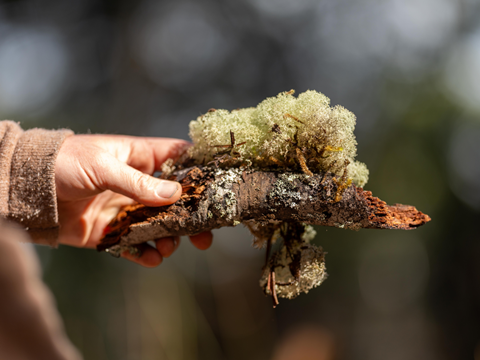
AGC Vinythai and Michigan State University’s Prof. Mojgan Nejad are working alongside allnex to increase the biobased content of epoxy resins and coatings by replacing the traditional bisphenol A (BPA) with lignin.
This marks the second stage of an ongoing project, commencing in November 2023 when allnex joined the team. The findings of the project’s first stage were published in the paper ‘Choosing the right lignin to fully replace Bisphenol A in epoxy resin formulation’ in the ChemSusChem Journal in January 2021.
Lignin, biobased epichlorohydrin, and biobased hardener were combined to achieve ‘comparable thermochemical performances to a BPA-based resin’. A lignin epoxidation method could apparently enable any unmodified lignin to completely replace BPA in the formulation of epoxy resin.
Masayoshi Namba, business director at AGC Vinythai, commented: “Innovation and sustainability are key values for AGC Vinythai and EPINITY is a leading example in our product portfolio. By working with partners, we are continuously improving the sustainability of our products.”
“We are thrilled to share the exciting collaboration between MSU, AGC Vinythai and allnex to develop a bio-based epoxy coating,” continued Professor Mojgan Nejad from Michigan State University. “By completely replacing Bisphenol A with technical lignins and using bio-based epichlorohydrin from AGC Vinythai, we’re paving the way for greener, more sustainable coatings.”
Florian Lunzer, director, Strategic Research, allnex, added: “As a leader of industrial coating resins, allnex focusses on innovative chemistry to meet the needs of our customers and advance sustainability. We are pleased to collaborate with MSU and AGC Vinythai to bring lower carbon footprint and Bisphenol A free epoxy solutions to the markets we serve.”
It is anticipated that the project will run until October 2026.
Last November, AkzoNobel invested €32 million into a similar pursuit – namely, a new plant at Vilafranca del Penedès, set to manufacture bisphenol-free coatings for metal packaging companies in the EMEA region. It is set to utilize a technology that reportedly reduces carbon footprint by approximately 30% compared to existing epoxy alternatives.
This year, Lignin Industries AB has mass-commercialized bioplastics made from lignin, which is in turn sourced from forest residues. Apparently suitable for such applications as PE films, its lignin contents apparently provide structure and aid in water retention while resisting toxins.
Meanwhile, a previous Lift-Off session from Amcor was dedicated to Michigan State University. Up to $250,000 in seed funding was made available to student teams and start-ups within the focus areas of alternative barriers, smart and connected packaging, new business models, biomaterials, fibre, and recycling.
If you liked this story, you might also enjoy:
How are the top brands progressing on packaging sustainability?
Sustainable Innovation Report 2024: Current trends and future priorities
Reuse vs. single use – which is better for the environment?
The ultimate guide to global plastic sustainability regulation














No comments yet